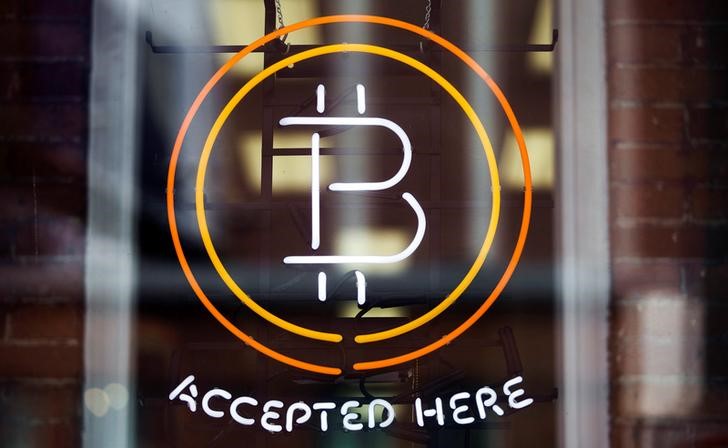Photo by Shubham Dhage on Unsplash
This post contains sponsored advertising content. This content is for informational purposes only and is not intended to be investing advice.
Despite blockchain technology’s status as a possible nascent disruptor, many remain in the dark about the technology’s potential implications on the global economy.
Language laden with complex technical terms and concepts can make it difficult for many people and businesses to understand how blockchain technology might change the world.
With a mission to become more than just a successful crypto mining company, Bluesky Digital Assets Corp. (CNSX: BTC) (OTCMKTS: BTCWF) says it aims to educate businesses on the blockchain by bringing together blockchain solutions providers, experts and influencers on its recently launched blueskyINTEL platform.
Blockchain In E-Commerce Over 22,000 venues around the world allow customers to pay with cryptocurrency, among them major brands like Expedia Group Inc. (NASDAQ: EXPE), Overstock.com Inc. (NASDAQ: OSTK) and Microsoft Corp . (NASDAQ: NASDAQ:MSFT). Major companies like International Business Machines Corp. (NYSE: NYSE:IBM), Intel Corp . (NASDAQ: NASDAQ:INTC) and Oracle Corp . (NYSE: NYSE:ORCL) have contributed entire divisions to the development of blockchain services for a variety of industries.
5 Ways Bluesky Reports That Blockchain May Make E-commerce Better: 1. Enhanced security
According to PriceWaterhouseCoopers’ annual Global Economic Crime and Fraud Survey 2020, 47% of companies experienced fraud in the past 24 months, with a total of $42 billion lost. Blockchain technology's “trustless” system makes fraud a difficult feat, providing a high level of security from malicious parties.
2. Cost-saving through automation
A reported major benefit to a blockchain is that it can automate e-commerce processes that are manhandled and prone to error and latency. With blockchain technology retailers can combine services like payment processing, inventory management and product description and spend less time and money manually maintaining these systems.
A particularly potent benefit of blockchain in e-commerce is its ability to curb supply-chain management bureaucracies and logistical costs. Bills on lading for cargo can be placed on the blockchain at every stage, reducing administrative fees and labor costs involved in the process. This cost is in no way small; American Productivity & Quality Center’s Open Standards Benchmarking data shows that supply-chain costs could amount to between 2% and 10% of business revenue.
Finally, because of the decentralized nature of cryptocurrency, e-commerce retailers can also bypass credit card and processing fees, which could reduce the costs of every transaction on their network.
3. Improved business processes
The lack of an intermediary between retailers and customers also means that there’s no added time for payment processing, a feature that can be particularly important for large purchases.
Aside from providing a trustless, immutable ledger for inventory, blockchains can store more than just transactional data. They can store smart contracts – pieces of code – with an “if-then” infrastructure to automate many business processes. Before diving into the benefits of smart contracts, take a look at what they are.
An apt metaphor for a smart contract, which is described on this Ethereum forum, is a vending machine. With the right inputs, a certain output is guaranteed. To get a snack from a vending machine:
Money + snack selection = snack dispensed
This logic is programmed into the vending machine, allowing for full automation in the customer’s buying process. A smart contract, like a vending machine, has logic programmed into it, and this logic can be implemented into blockchain networks.
Consider an e-commerce site with a smart contract for JBL speakers with the following logic:
At the beginning of the transaction, if the seller sends a JBL speaker to the buyer, the buyer sends 50% of the cost of the JBL speaker to the buyer. At the conclusion of the transaction, if the seller receives the JBL speaker from the buyer, the seller sends the remaining 50% cost of the JBL speaker to the buyer.
While the logic is typically more complicated than this, the overarching idea is sound: Through preconstructed logical arguments, this e-commerce’s entire buying process is automated in a way that ensures sellers only pay the full amount for their purchase after the item is received.
Businesses can apply smart contracts to store inventory, report supply-chain developments, provide payment infrastructure and issue reward programs.
4. Greater access to global customers
For customers living in developing countries, access to reliable banking systems is not always a given. Blockchain and cryptocurrency allow them to bypass banking intermediaries, and, in turn, can increase a business’s total addressable market.
5. Genuine reviews
E-commerce operators can use blockchain’s trustless feature to ensure that all reviews made on their products are genuine. With a “fake review pandemic,” on the loose, this may provide e-commerce retailers with a direct route to establishing credibility in a world of misinformation. One study showed that 76% of U.S. shoppers are less likely to make a purchase from an online store with no user-generated content, illuminating the importance of this key feature.
To Blockchain, Or To Not To Blockchain? Implementing blockchain technology into existing e-commerce infrastructure can reportedly improve cybersecurity, inventory management, payment processes, product credibility and other processes.
While the complexity of the technology acts as a natural deterrent to its implementation, wary business owners might do well to at least get acquainted with the benefits associated with blockchain’s basic principles.
For those willing to explore further, Bluesky states that it provides a direct pathway to information on all things blockchain, artificial intelligence and decentralized finance.
You can hop on the blockchain bandwagon here.
This post contains sponsored advertising content. This content is for informational purposes only and is not intended to be investing advice.
© 2022 Benzinga.com. Benzinga does not provide investment advice. All rights reserved.
